Filter by

Governing delinquency through freedom : control, rehabilitation and desistance
"This book analyses the non-custodial government of young offenders in two major cities in Brazil. In doing so, it delves into the paradox of an institution exerting control over youths while at the same time promoting their autonomy and responsibility. The study sheds light on the specific logics of power, control, and inequality produced by such institutional settings. The book’s analysis i…
- Edition
- -
- ISBN/ISSN
- 9780429466175
- Collation
- 270p
- Series Title
- -
- Call Number
- 364.360981 BUG
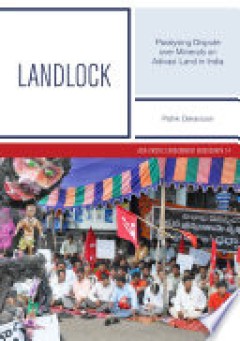
Landlock : paralysing dispute over minerals on Adivasi land in India
Landlock: Paralysing Dispute over Minerals on Adivasi Land in India explores the ways in which political controversy over a bauxite mining and refining project on constitutionally protected tribal lands in Andhra Pradesh descended into a state of paralysis where no productive outcome was possible. Long-running support for Adivasi (or tribal) land rights motivated a wide range of actors to block…
- Edition
- -
- ISBN/ISSN
- 9781760462512
- Collation
- xiv + 226 p
- Series Title
- -
- Call Number
- 333.10954 PAT l
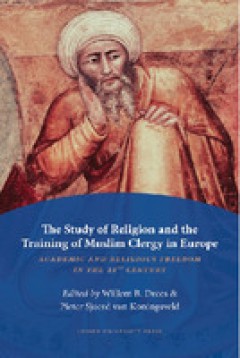
The Study of Religion and the Training of Muslim Clergy in Europe
Religious scholarship can be offensive to believers, as conflicts from the time of Galileo and Spinoza to the recent critique of Danish religious scholars in the wake of the infamous Muhammad cartoons have shown. Studies of this type of scholarship have been appropriated by believers as a means of reinventing their own identities - as the training of twentieth-century Muslim clergy demonstrates…
- Edition
- -
- ISBN/ISSN
- 9789087280253
- Collation
- 503p
- Series Title
- -
- Call Number
- 200.71 DRE s
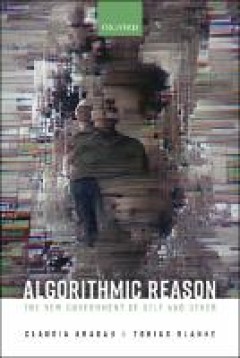
Algorithmic reason : the new government of self and other
Are algorithms ruling the world today? Is artificial intelligence making life-and-death decisions? Are social media companies able to manipulate elections? As we are confronted with public and academic anxieties about unprecedented changes, this book offers a different analytical prism to investigate these transformations as more mundane and fraught. Aradau and Blanke develop conceptual and met…
- Edition
- -
- ISBN/ISSN
- 9780192859624
- Collation
- ix; 288 pg; ill.
- Series Title
- -
- Call Number
- 363.230285 ALG a
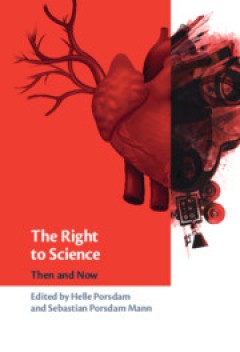
The right to science : then and now
That everyone has a human right to enjoy the benefits of the progress of science and its applications comes as a surprise to many. Nevertheless, this right is pertinent to numerous issues at the intersection of science and society: open access; 'dual use' science; access to ownership and dissemination of data, knowledge, methods and the affordances and applications thereof; as well as the role …
- Edition
- -
- ISBN/ISSN
- 9781108478250
- Collation
- xii, 324 p. ; ill
- Series Title
- -
- Call Number
- 342.0853 POR t
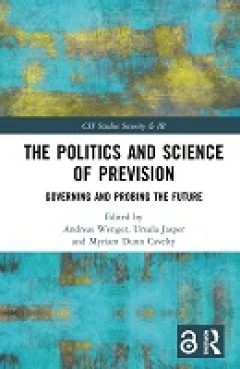
The politics and science of prevision : governing and probing the future
"This book inquires into the use of prediction at the intersection of politics and academia, and reflects upon the implications of future-oriented policymaking across different fields. The volume focuses on the key intricacies and fallacies of prevision in a time of complexity, uncertainty and unpredictability. The first part of the book discusses different academic perspectives and contributio…
- Edition
- 10
- ISBN/ISSN
- 9780367900748
- Collation
- xi, 272 p. : ill.
- Series Title
- -
- Call Number
- 320.6 WEN t
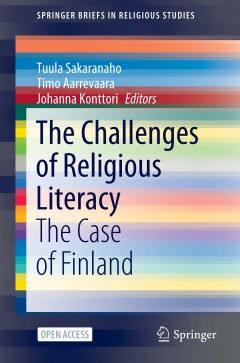
The challenges of religious literacy : the case of Finland
This open access book presents religious literacy as the main explanatory factor when dealing with certain ethnic groups that attract stereotypes which gloss over other personal factors such as age, class, gender and cultural differences. It discusses freedom of religion, and the Christian revival movement. It examines religious literacy and religious diversity in multi-faith schools. It looks …
- Edition
- -
- ISBN/ISSN
- 9783030475765
- Collation
- xi, 84p. : ill.
- Series Title
- -
- Call Number
- 200.94897 CHA c
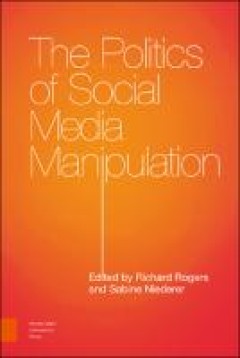
The politics of social media manipulation
Disinformation and so-called fake news are contemporary phenomena with rich histories. Disinformation, or the willful introduction of false information for the purposes of causing harm, recalls infamous foreign interference operations in national media systems. Outcries over fake news, or dubious stories with the trappings of news, have coincided with the introduction of new media technologies …
- Edition
- -
- ISBN/ISSN
- 978 90 4855 167 5 (
- Collation
- 292 p.
- Series Title
- -
- Call Number
- 320 POL p
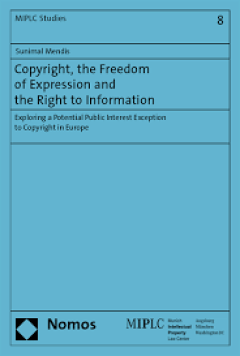
Copyright, the Freedom of Expression and the Right to Information
With the advent of a global community, which draws its sustenance from the unfettered communication of ideas and expression, it is worth reflecting on the role of copyright law and considering whether the existing legal frameworks of copyright in Europe have the capacity to meet the changing needs of a new generation who have given a whole new meaning to the term ""creativity"" and to that of "…
- Edition
- Edition 2011, Volume 8
- ISBN/ISSN
- 9783845231266
- Collation
- 84 p.
- Series Title
- -
- Call Number
- 340 MEN c
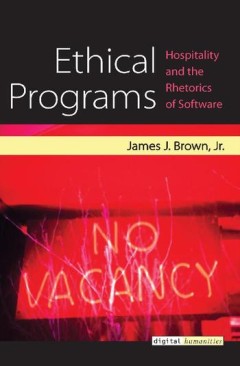
Ethical programs : hospitality and the rhetorics of software
Living in a networked world means never really getting to decide in any thoroughgoing way who or what enters your “space” (your laptop, your iPhone, your thermostat . . . your home). With this as a basic frame-of-reference, James J. Brown’s Ethical Programs examines and explores the rhetorical potential and problems of a hospitality ethos suited to a new era of hosts and guests. Brown rea…
- Edition
- -
- ISBN/ISSN
- 9780472072736
- Collation
- x, 217p. : ill.
- Series Title
- -
- Call Number
- 174.9005 BRO e
 Computer Science, Information & General Works
Computer Science, Information & General Works  Philosophy & Psychology
Philosophy & Psychology  Religion
Religion  Social Sciences
Social Sciences  Language
Language  Pure Science
Pure Science  Applied Sciences
Applied Sciences  Art & Recreation
Art & Recreation  Literature
Literature  History & Geography
History & Geography